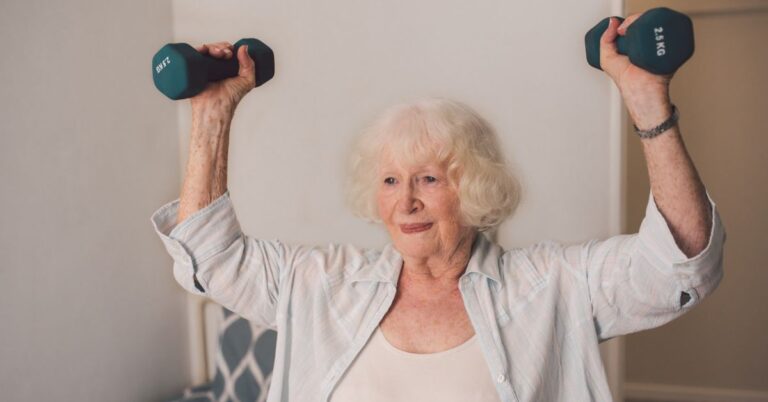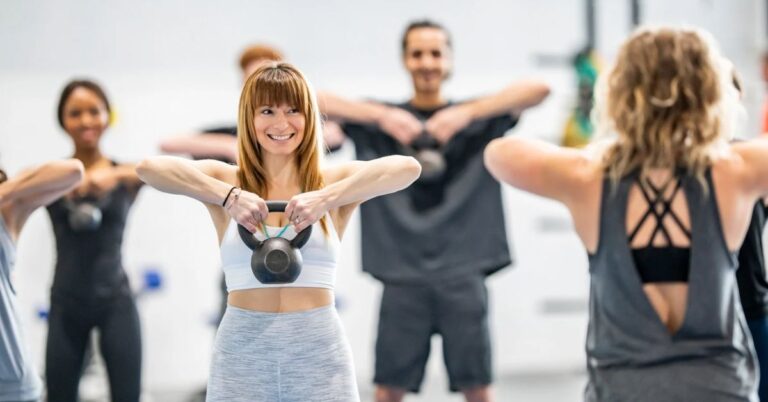The Ultimate Guide to Longevity and Anti-Aging
Aging, a natural process, is significantly influenced by our daily choices. Scientific evidence demonstrates that factors like nutrition, exercise, daily habits, and sleep hygiene can impact our biological aging.
In this comprehensive guide, we’ll explore into the essential components of anti-aging and longevity. You’ll discover how to identify the early signs of aging, adopt effective exercise routines, select age-appropriate foods, establish a longevity-focused morning routine, and incorporate the right supplements.
No matter how old you are, whether you’re in your 30s or getting close to 60, this post is here to help you age with grace, both in your body and your mind!
We highly recommend checking out, our Complete guide on Longevity and Anti-Aging, where we have covered everything from symptoms, routines, diet and much more.
What Is Longevity and Can We Really Slow Aging?
Longevity isn’t solely about extending our lifespan; it’s about living a longer, healthier, and more vibrant life! This concept, known as ‘healthspan,’ emphasizes the importance of ensuring that we can enjoy as many years as possible being active, mentally sharp, and free from illness.
Even though we can’t turn back time, some cool research shows that certain lifestyle changes can actually help slow down the aging process in our bodies. Think about things like strength training, eating fewer calories, managing stress, and making sure our daily routines match our natural sleep-wake cycles.
According to the National Institute on Aging, these strategies can play a pivotal role in slowing cellular damage and promoting longevity.
Table of Content
- Early Signs of Accelerated Aging.
- The Role of Exercise in Anti-Aging.
- Anti-Aging Foods That Support Longevity.
- Why Sleep Is Your Anti-Aging Weapon.
- Morning Routine for Longevity and Anti-Aging.
- Daily Habits That Slow Cellular Aging.
- Get Younger from the Inside Out.
- Bonus: Breathwork & Stress Reduction.
- How to Measure Your Biological Age at Home.
Early Signs of Accelerated Aging
If you’ve been feeling a bit ‘old’ lately and think time might be moving faster than you’d like, it’s a good idea to keep an eye out for those little things your body might be trying to tell you.
Accelerated aging isn’t always about those deep wrinkles. It often starts with little things like feeling less energetic, having a grumpier mood, or just not feeling as vibrant as you used to.
- Noticeable loss of muscle mass and strength
- Brain fog or declining memory
- Early onset of fine lines and wrinkles
- Persistent fatigue or low energy levels
- Hormonal imbalances or irregular menstrual cycles
- Slow wound healing
- Poor-quality sleep or insomnia
If several of these apply to you, it might be time to take action. Learn more in our detailed post:
Are You Aging Too Fast? 9 Early Signs of Accelerated Aging You Shouldn’t Ignore
The Role of Exercise in Anti-Aging
Exercise is one of the most effective tools for slowing down the aging process. In particular, strength training has been proven to:
- Improve muscle mass and boost metabolism
- Increase bone density
- Enhance insulin sensitivity
- Support mitochondrial function and energy production
For those over 35, prioritizing resistance training is crucial. Discover why in our article:
Over 35? Here’s Why Strength Training Is Your Anti-Aging Superpower
Other beneficial workouts include:
- High-Intensity Interval Training (HIIT)
- Walking 8,000–10,000 steps per day
- Yoga and pilates for flexibility and stress relief
Anti-Aging Foods That Support Longevity
Did you know what you eat can really shape how you age? Eating lots of antioxidants, healthy fats, and fiber can help fight inflammation and oxidative stress, which are key things that make us age. So, what should a plate that helps you live longer look like?
| Food Group | Examples | Benefits |
|---|---|---|
| Leafy Greens | Kale, spinach, arugula | Supports DNA repair and detoxification |
| Healthy Fats | Avocados, olive oil, nuts | Promotes brain health and reduces inflammation |
| Fermented Foods | Yogurt, kefir, kimchi | Enhances gut health and immunity |
| Colorful Veggies | Carrots, beets, red peppers | Rich in antioxidants to protect skin and cells |
| Low-Glycemic Carbs | Quinoa, berries, sweet potatoes | Stabilizes blood sugar and reduces glycation |
If you’re interested in learning more about diet and foods suitable for older adults, please refer to the guide provided below.
The Diet That Helps You Stay Strong After 90 Backed by Research
Why Sleep Is Your Anti-Aging Weapon
Getting enough sleep is super important for keeping our hormones in check, helping our cells heal, and living a long, healthy life. When we mess with our sleep, it can throw off the production of melatonin, growth hormone, and cortisol, all of which are key for tissue repair and keeping our immune system strong. Even just one bad night’s sleep can really mess with these things!
- Skin hydration and elasticity
- Mental clarity and mood
- Insulin sensitivity
- Inflammatory responses
Explore how to improve your sleep and reverse these effects:
Why Sleep Is Your Ultimate Anti-Aging Weapon (& How to Optimize It)
Morning Routine for Longevity and Anti-Aging
A great morning routine can really kickstart your day and help you age well! Longevity experts usually suggest routines that include:
- Drinking water with electrolytes first thing
- Getting natural sunlight within 30 minutes of waking
- Gentle stretching or morning movement
- Breathwork or mindfulness exercises
- A low-sugar, protein-rich breakfast (or intermittent fasting)
You can build your own personalized anti-aging morning routine by following the guide below:
Longevity Morning Routine: What Top Anti-Aging Experts Do Before 8 A.M.
Daily Habits That Slow Cellular Aging
Maintaining a consistent routine is crucial for long-term health and happiness. Here are some daily habits backed by science that can make a significant difference:
- Practicing intermittent fasting or time-restricted eating
- Reducing alcohol and avoiding processed foods
- Managing stress and regulating cortisol levels
- Building strong social connections and having a sense of purpose
- Walking or staying physically active throughout the day
Even small habits can lead to significant long-term advantages. Let’s begin with this one:The 30-Second Daily Habit That Slows Down Cellular Aging
Get Younger from the Inside Out
It’s totally doable to actually turn back the clock on your biological age by making some smart lifestyle choices! Think about getting enough restful sleep, maybe trying out intermittent fasting or time-restricted eating, and keeping up with regular strength and cardio workouts to keep your muscles and metabolism in tip-top shape. Here are some cool tips to help you feel younger and more vibrant from the inside out!
- Monitoring heart rate variability (HRV).
- Lowering chronic inflammation through diet and rest.
- Supporting your mitochondria with movement and nutrition.
- Balancing hormones naturally.
Explore these steps in depth: How to Get Younger From the Inside: 5 Science-Backed Steps
How to Measure Your Biological Age at Home
Are you curious about your body’s true age? There are now several at-home methods available to measure biological age.
- Epigenetic tests using saliva or blood.
- DNA methylation analysis.
- Physical markers like VO2 max and grip strength.
Learn more about how to conduct these these, and determine your biological age at home:
How to Measure Your Biological Age at Home (And Lower It, According to Science)
Bonus: Breathwork & Stress Reduction
Hey, did you know that stress can speed up aging by cutting short telomeres and cranking up cortisol levels? But guess what? There are some awesome ways to ease your body’s stress and boost your lifespan! Breathwork, meditation, and even cold exposure can really help.
Keep an eye out for our upcoming guide on daily breathwork that’s all about keeping your hormones and cells happy and healthy.
Your Longevity Game Plan
Living well as we age is all about being intentional with how we live. By focusing on getting enough sleep, moving your body, eating healthy, managing stress, and staying connected with others, you can really boost your health and how happy you feel. This week, why not pick one or two new habits to try? Even tiny, regular changes can make a big difference over time!





